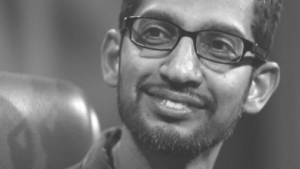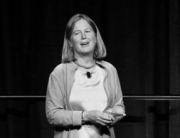 Sundar Pichai, head of Google’s (GOOG) Android, Apps and Chrome business, now is boss of all the company’s core products, including commerce and ads, Google+, infrastructure, maps, research and search, in an executive reorganization spearheaded by chief executive Larry Page.
Sundar Pichai, head of Google’s (GOOG) Android, Apps and Chrome business, now is boss of all the company’s core products, including commerce and ads, Google+, infrastructure, maps, research and search, in an executive reorganization spearheaded by chief executive Larry Page.
According to Re/code, which first reported the shakeup, the six Google executives heading product groups newly under Pichai’s domain—Alan Eustace in research; Amit Singhal in search; Dave Besbris in social; Jen Fitzpatrick in maps; Sridhar Ramaswamy in ads and commerce; and, Urs Hölzle in technical infrastructure—no longer report to Page but instead to Pichai.
All except for Besbris, who joined Google in 2008, have been with the company for more than 10 years, Re/code reported, and are not expected to balk at the management change.
As the new de-facto Google product guru, Pichai will report to Page, but his Android and Chrome senior vice president title won’t change for now, the report said.
Left out of the management reorganization is Google’s YouTube group, whose chief executive Susan Wojcicki will continue to report to Page, according to the Re/code account.
In a company memo to employees, Page said he believes shuffling product unit oversight to Pichai will free him to focus on the 35,000-foot view as well as existing and new products, Re/code reported. He will continue to manage business and operations, and maintain responsibility for Nest, Calico, Google X, corporate development, legal, finance and ad sales, along with overseeing access and energy, a new unit run by Craig Barratt, the former Qualcomm (QCOM) Atheros head.
Google recently appointed Hiroshi Lockheimer, its mobile OS Android Engineering vice president, to oversee the desktop and notebook-focused Chrome OS engineering team, putting him in charge of engineering for both products and renewing speculation the vendor will coordinate or perhaps even merge the two operating systems at some point in the near future.
Pichai has maintained that Google has no plans to merge Android and the Chrome OS. “We view them as building blocks,” he said in March. “By investing in both, we believe that over time we will be able to meet almost all use cases.”






